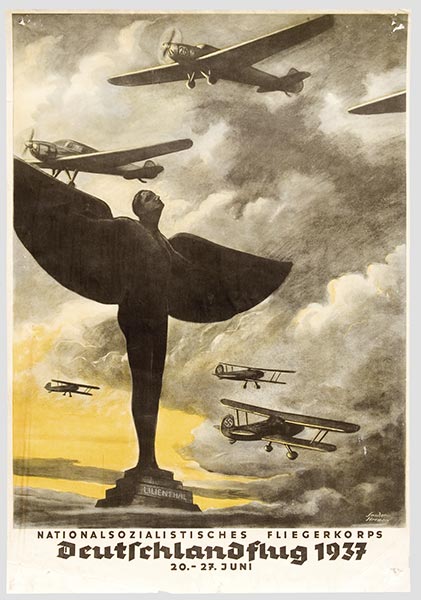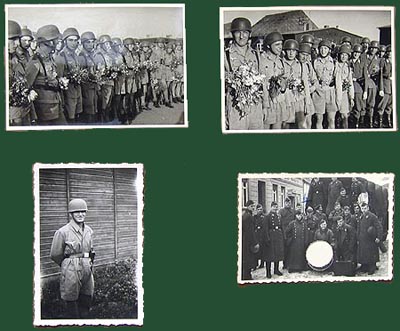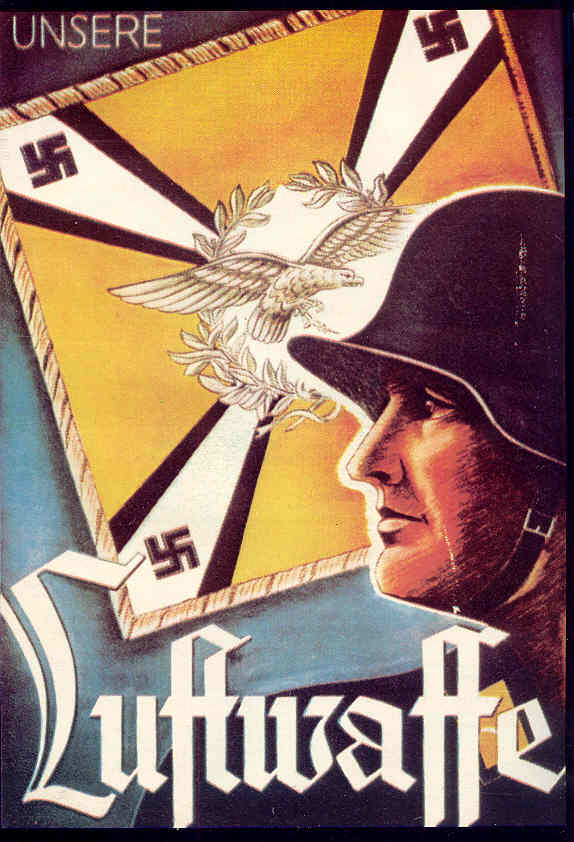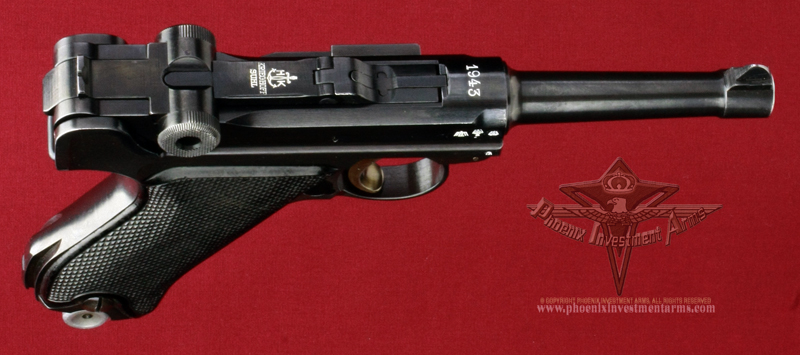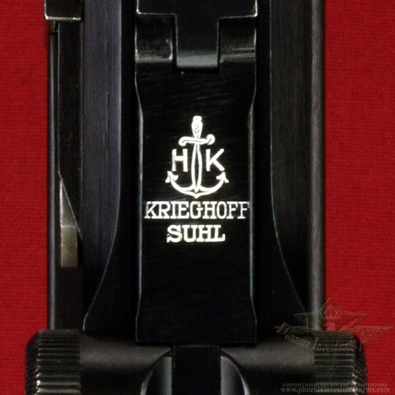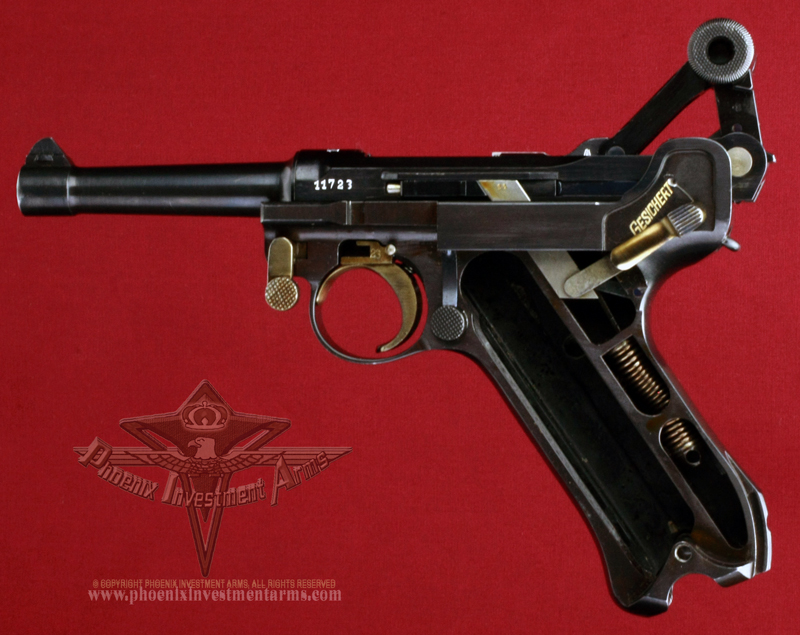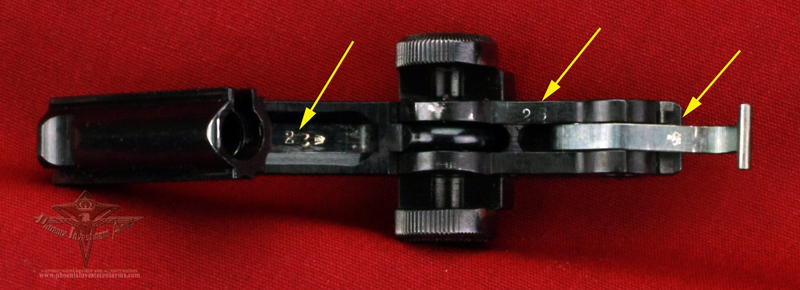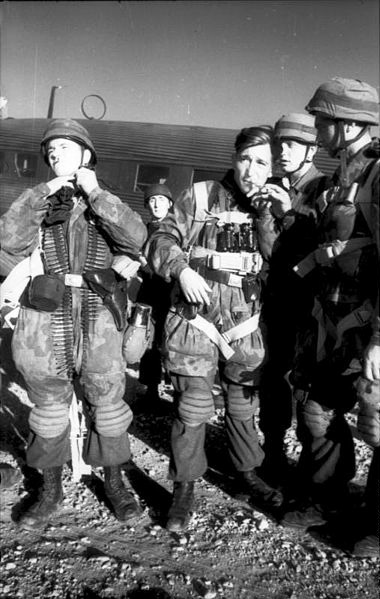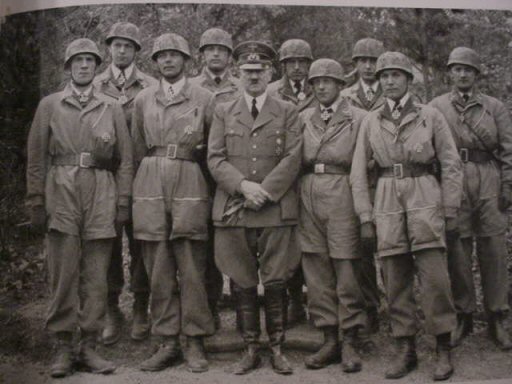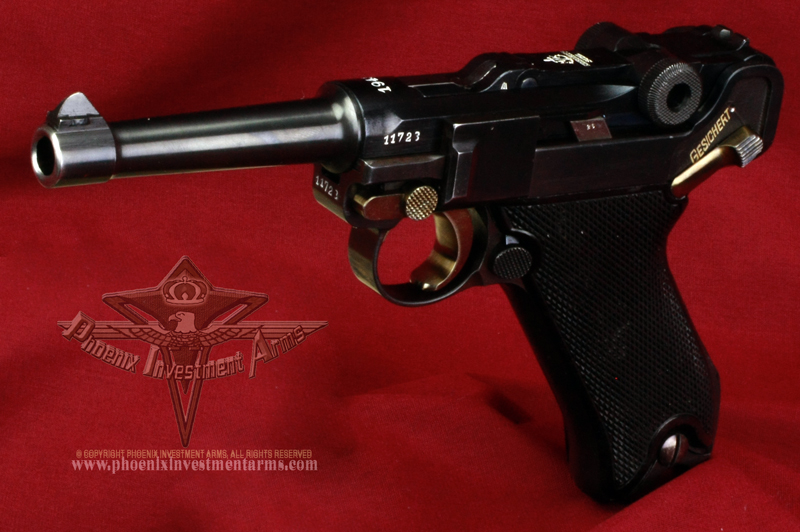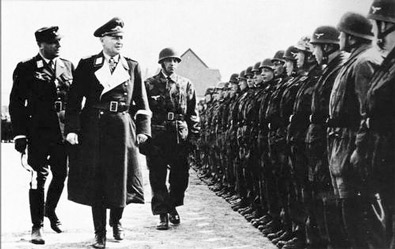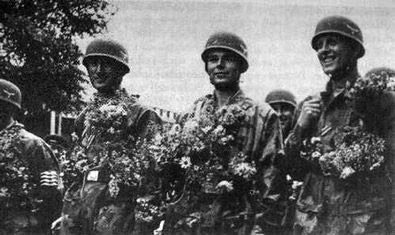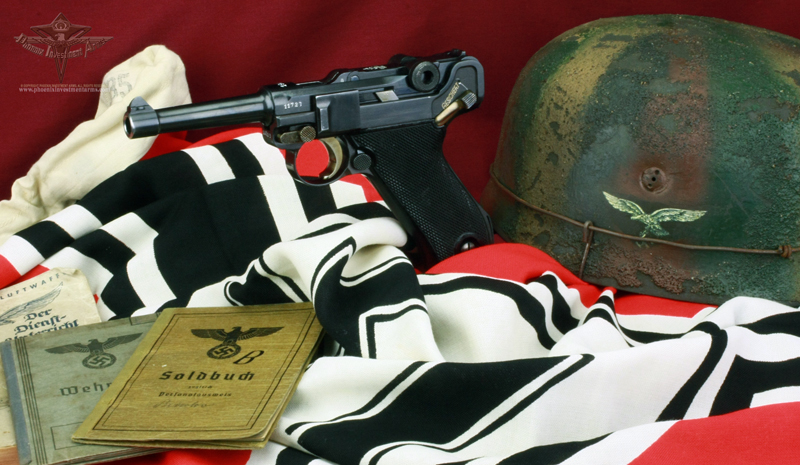|
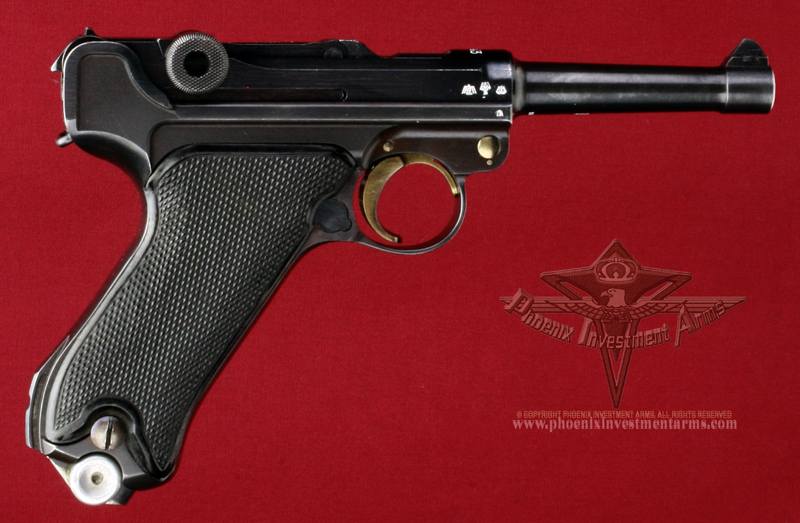 |
 |
|
Here you can see the extractor marked
GELADEN (Loaded) which raised up when a round was in the chamber. This
was visible in light and you can feel the raised piece in the dark. You
can see the new Stage II proof (stylized) on the receiver and the last two digits
of the serial number on the sear stop. |
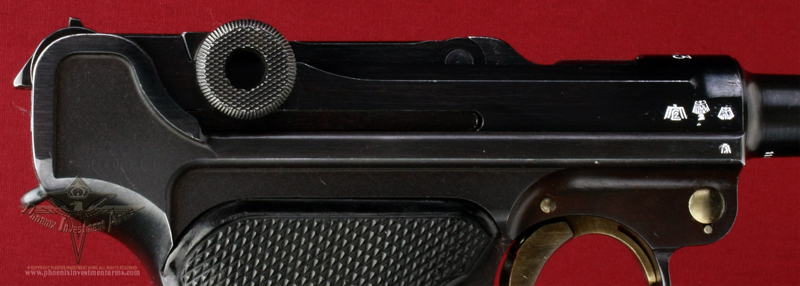 |
|
On the right size one
can observe both Stage II (LWaA 2) proofs and lend support to the
published information that all the parts were made in 1937 and when the
guns were finally assembled beyond the 1937 (10,000 order) after the
adoption of the newer more stylized Stage II in 1938 was applied at the
time the later guns were delivered. |
|
 |
|
As characteristic of the early contract
Lugers, the polishing prior to bluing of these pistols was excellent and
superior to the other
manufacturers processes. These contract pistols were salt blued in
a bath of 300°F
which produced the uniform premium blue appearance. It has been reported
that after the initial production was completed in 1937; in 1938 after
the German Anschluss in Austrian the machinery was moved to a subsidiary
plant in Kufstein, Austria and no more parts were produced at Suhl. |
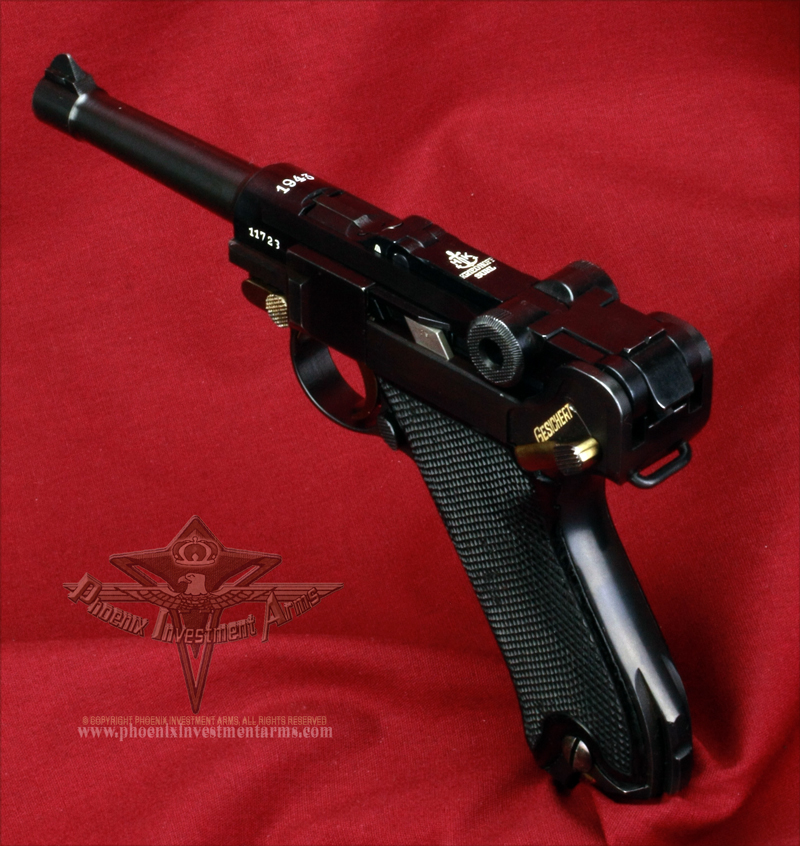 |
|
This relative scarcity contributes to the
spiraling costs of the Krieghoff over the last ten years with good
examples in prime condition very difficult to find. The 1943 remains
very elusive to the collector of Krieghoff's. You are seeing
one of 300 in premium condition from the battlefield of WWII. |
|
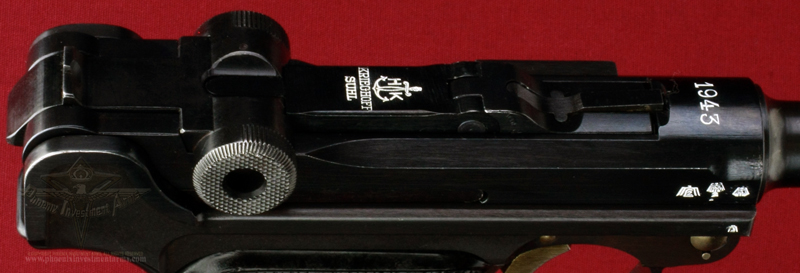 |
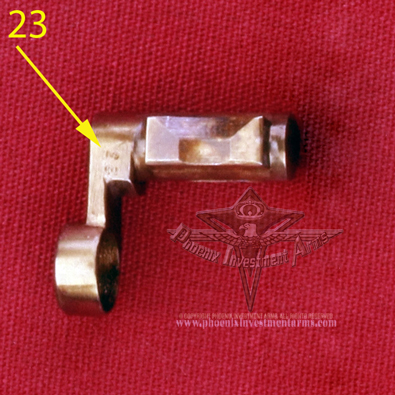 |
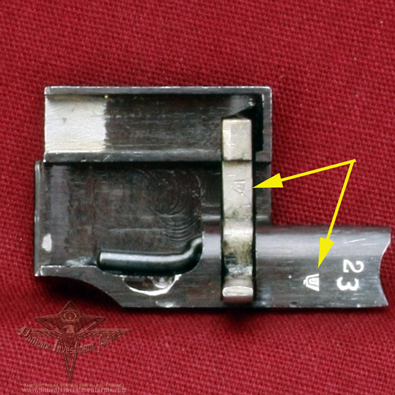 |
|
Above: Krieghoff marked the inside of the side plate much like the
civilian models. The serial numbers match throughout the gun and the
magazine is matched to the Luger. The locking lever is found on the
bottom of the lever. Proof marks were extensive on the contract
Krieghoffs, with both Stage I and Stage II acceptance proofs
throughout the Luger. Hidden under the side plate is the Eagle 2 proof
on the parts serial number. Below the serial numbered firing pin,
(fluted new style). |
|
 |
|
 |
|
The Eagle 2 Proofs and the last two numbers
about the serial number appear in a hidden manner throughout the weapon.
Under the barrel is the gauge markings (horizontally) along with the matching serial
numbers along with the two early Eagle 2 proofs. |
|
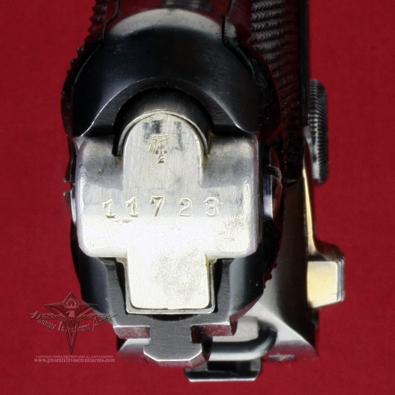 |
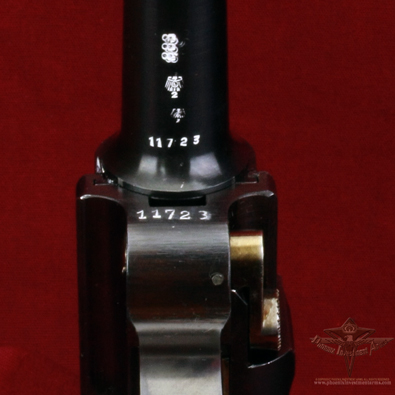 |
|
This serial number falls
in the range of know 1943 Krieghoffs (11328-11750). The barrel is serial
numbered to the receiver and the magazine (a 122 proofed, utilized by
Krieghoff in lieu of the FXO magazines by Mauser.) The early
magazine bottoms had the Eagle 2 Krieghoff proof facing forward and
later it was turned over to read the same left to right as the serial
number. There is no known reason for this. |
|
 |
|
 |
|
Proof marks were extensive on the contract Krieghoffs, with both Stage I and Stage II acceptance proofs
throughout the Luger. The breech block has the serial number on the side
along with the new Stage II proofs while the last toggle link displays
the Eagle 2 Krieghoff proof and no serial number on the rear of the 2nd
toggle line but under the toggle. On the right side is the early
acceptance proof, again indicating that this part was inspected prior to
1939. |
|
 |
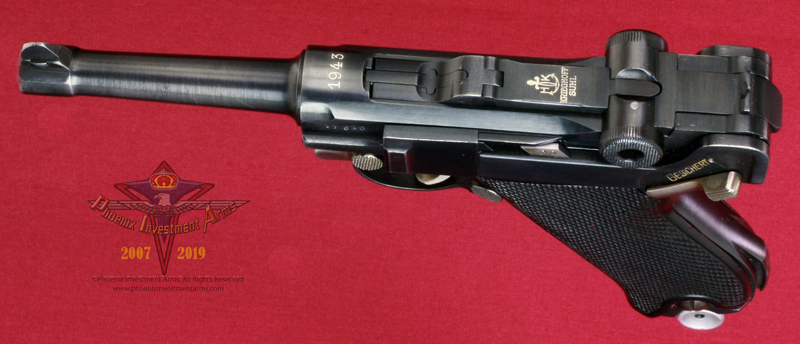
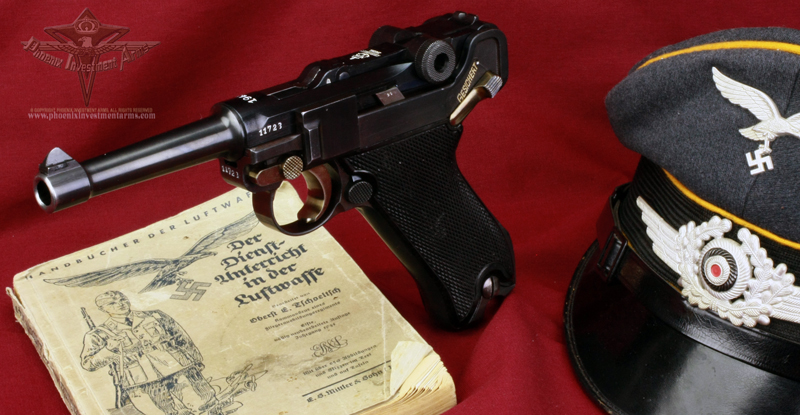
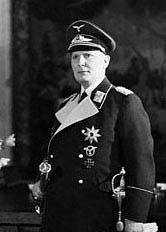
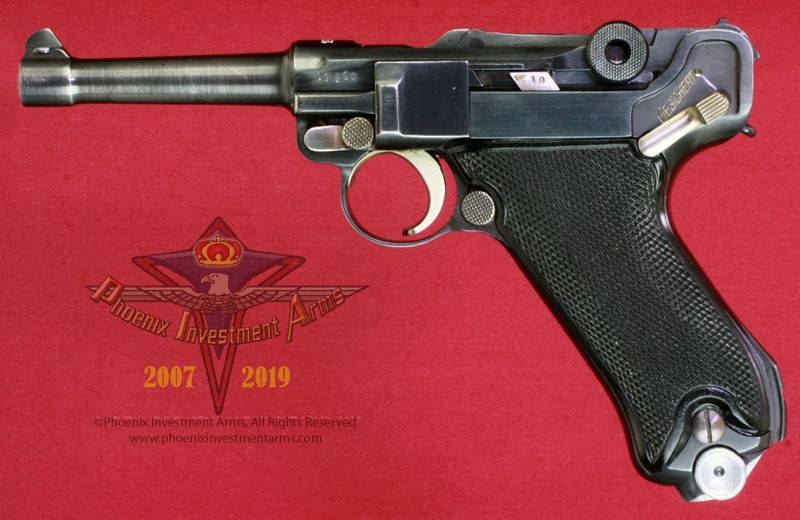
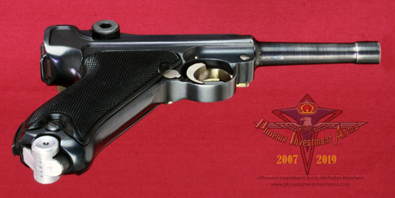
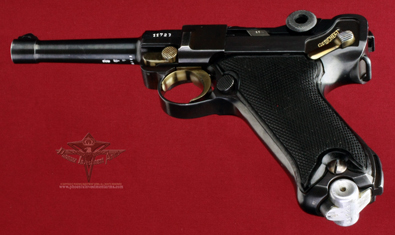

.jpg)
